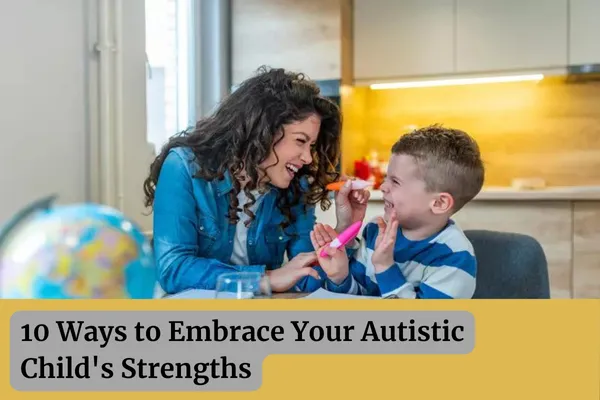Harmony in
Neurodiversity
THE BLOG
Welcome to Harmony in Neurodiversity, a blog dedicated to exploring the profound impact of music and positive parenting strategies on the lives of neurodivergent individuals. Join Samantha, a board-certified Neurologic Music Therapy fellow and a passionate Positive Discipline Parent Educator, as she shares her expertise in leveraging the power of music and effective parenting approaches to support and empower neurodiverse communities.
In her blog posts, Samantha delves into the intricate connections between music and the brain. She explores how specific musical elements and interventions can enhance cognitive functions, regulate emotions, improve communication, and promote social interaction among neurodivergent individuals. Through insightful articles and case studies, she demonstrates how rhythm, melody, and lyrics can serve as powerful tools for therapeutic interventions, fostering growth and self-expression.
Positive Discipline Parenting Strategies:
Drawing from her expertise as a Positive Discipline Parent Educator, Samantha sheds light on nurturing positive relationships between parents and neurodivergent children. Her blog offers practical advice, evidence-based strategies, and real-life anecdotes that empower parents and caregivers to cultivate respectful, encouraging, and effective parenting techniques. From setting clear boundaries to fostering a supportive environment, Samantha guides readers in navigating the challenges and joys of parenting neurodiverse children.
Exploring Intersectionality:
Samantha doesn't limit her discussions to singular approaches. Instead, she delves into the intersectionality of Neurologic Music Therapy and Positive Discipline Parenting, illustrating how these methodologies complement each other. Through her insightful content, she showcases how the harmonious integration of music-based interventions and positive parenting strategies can create holistic support systems for neurodivergent individuals, promoting their well-being and personal growth.
Community Engagement and Resources:
Additionally, Samantha fosters a vibrant online community where readers can engage, share experiences, and seek advice. She curates a wealth of resources, including recommended readings, workshops, and practical tools, empowering her audience to implement valuable insights into their lives effectively.

10 Ways to Embrace Your Autistic Child's Strengths
10 Ways to Embrace Your Autistic Child's Strengths
As a mom to three neurodivergent kids, I've learned firsthand the importance of embracing and nurturing their strengths. My children have a unique journey, but one thing remains consistent: they excel when we focus on their strengths, and their mental health also improves.
Take my son, for example. Reading has never been his thing. Things began to change when I introduced him to a giant dinosaur encyclopedia. Dinosaurs are his passion, his obsession.
Suddenly, reading became not just a task but a joy. He read about his favorite things and then began writing his own books. He still struggles in reading, but he is getting better and has a better attitude about it.
The Power of Strength-Based Learning
Unfortunately, in the special needs world, people often look at a child's weaknesses first, but understanding and harnessing our children's strengths can be transformative.
It's about recognizing their passions and talents and channeling that energy into their education and personal growth.
Here are ten ways you can help your child learn and thrive through their strengths:
1. Identify and Celebrate Their Strengths: Take the time to observe and identify what your child excels at. It could be academic, social, artistic, athletic, or personal traits like empathy or resilience.
Acknowledge these strengths explicitly in your child and in your interactions with others. Doing this can help build your child's confidence.
2. Encourage Exploration and Play: Provide opportunities for your child to explore different interests and activities. Allow them to experiment with various hobbies, sports, arts, and sciences. By allowing them to explore, you will naturally help them discover their passions and strengths.
3. Tailor Learning Experiences: Recognize that every child learns differently. Tailor their learning experiences to their strengths and preferences. For example, if your child is a visual learner, use diagrams and charts to explain concepts. If they thrive with hands-on activities, incorporate experiments or interactive projects into their learning.
4. Celebrate Effort and Progress: Focus on effort and progress rather than solely on outcomes. Encourage perseverance and resilience by celebrating small achievements along the way. This fosters a growth mindset where mistakes are seen as opportunities to learn and improve.
5. Advocate for Their Needs: Understand and accommodate your child's unique needs. Advocate for necessary accommodations at school or social settings to help them thrive. This might include modified assignments, sensory breaks, or specialized therapies.
6. Promote Self-Expression: Encourage your child to express themselves authentically. This could be through art, writing, music, or even just sharing their thoughts and feelings openly with you. Create a space where they feel accepted and valued for who they are.
7. Set Realistic Goals: While it's important to challenge your child, set realistic expectations that are tailored to their abilities. Avoid comparing them to siblings or peers, as this can undermine their confidence and motivation.
8. Create a Supportive Environment: It's important to create a home environment where your child feels loved and accepted. Open communication, active listening, and respect for their opinions and choices can help them improve their self-esteem and learning.
9. Embrace Diversity: Lead by example in embracing diversity and individuality. Show respect for different perspectives, interests, and abilities in your interactions with others. This will teach your child the value of respecting and celebrating differences.
10. Connect with Community: Connect with other parents, educators, and professionals who understand and appreciate neurodiversity and individuality. Sharing experiences and resources can provide valuable insights and support on your journey. If you’re looking for a supportive community, check out Parenting Your Neurodivergent Child.
Focusing on our children's strengths helps them succeed academically and fosters confidence and resilience. It's about nurturing their passions and giving them the tools they need to navigate the world with strength and determination.
For more information about learning strategies with children, listen to the Every Brain is Different Podcast with Elisabeth Stitt.


